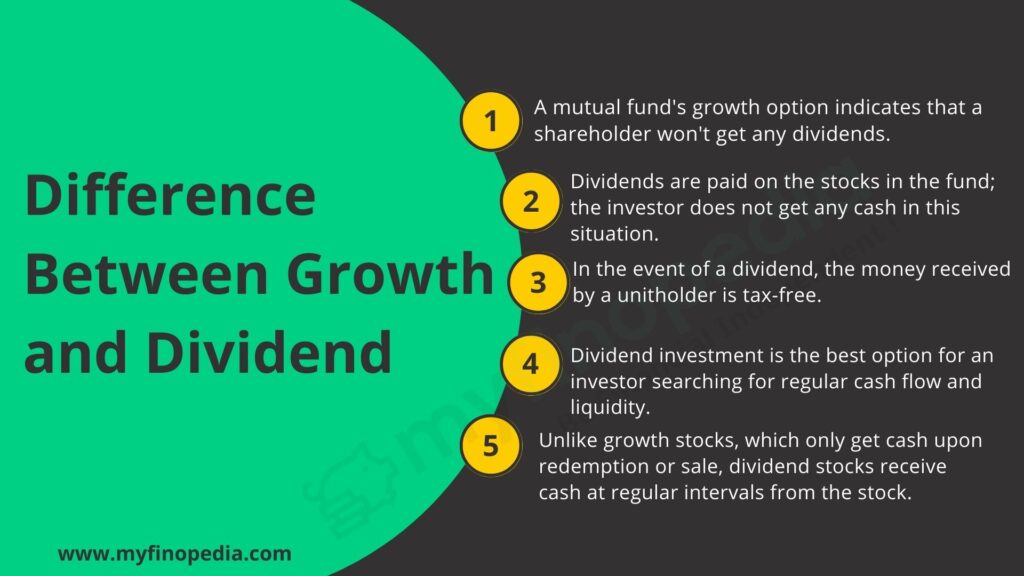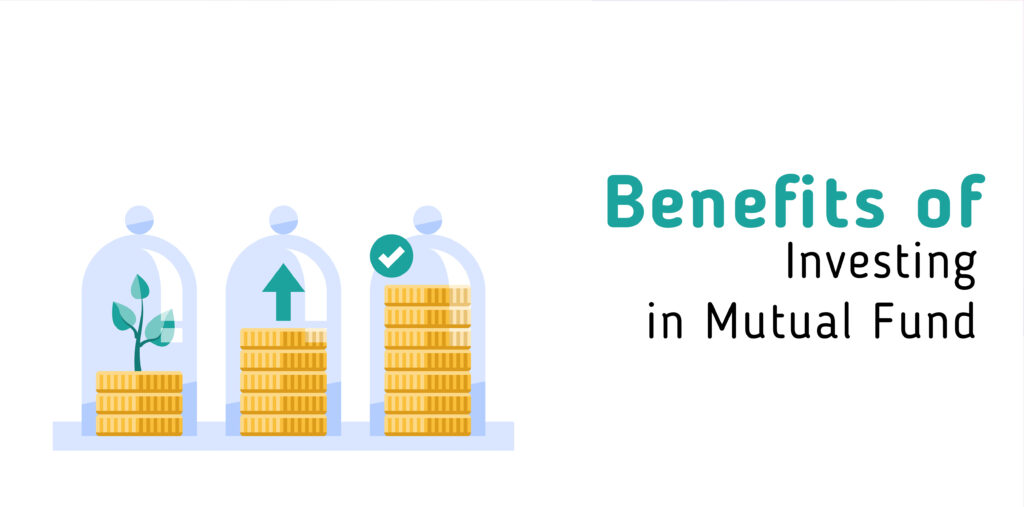Growth and Dividend are the two main categories of opportunities offered by mutual funds. Many investors are unable to grasp the assumptions underlying these options. In the dispute between the growth and dividend options, some people favour the growth option, while others favour the dividend option. However, One choice is not always preferable to another. In this article, we shall consider upon all the nuances and benefits of these two options of funds:-

- First of all, A mutual fund’s growth option indicates that a shareholder won’t get any dividends. The money that the fund firm would have distributed as a dividend is instead reinvested. This reinvestment increases the net asset value (NAV) of the mutual fund. Dividends are paid on the stocks in the fund; the investor does not get any cash in this situation. Instead, the fund’s managers use money automatically to buy new shares. By using this strategy, more shares are eventually acquired, and the account’s value often grows faster than it would have otherwise.
- Companies with consistent cash flows and no need for substantial capital expenditures are more likely to have dividend-paying stocks. Growth stocks, on the other hand, may experience growth because of the firms’ ambitious plans for the future and considerable investments in capital that will pay off over time.
- Unlike growth stocks, which only get cash upon redemption or sale, dividend stocks receive cash at regular intervals from the stock.
- Dividend investment is the best option for an investor searching for regular cash flow and liquidity. On the other hand, if an investor wants to gain from growth and wants to keep his money invested for a long time, he should choose growth mutual fund stocks.
- The investor loses on the compounding of the excess return on the stock because, in the case of a dividend, the money is taken out in the form of a dividend by the investor, whereas the excess profits get compounded and stay re-invested, increasing the value of the investment and being compounded every period in growth.
- If there is a dividend, there will be a regular influx of cash into the stock; but, if there is growth, there will only be an inflow of cash at redemption or sale.
- In the event of a dividend, the money received by a unitholder is tax-free, and in the case of growth, the money is only tax-free in some mutual fund schemes provided you can stay invested for 15 years or longer.
In conclusion, Mutual funds should be chosen based on the investor’s requirements and ambitions. He should choose short-term, high-risk equities mutual investments. Growth equities can’t match the returns that dividend stocks may produce. But as we are all aware, the return varies and is based on the state of the market.






